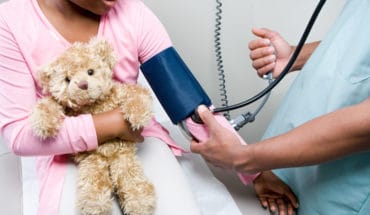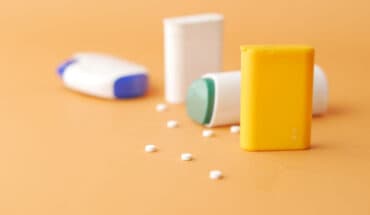Resistant E. coli and Salmonella associated with antibiotic use in factory farms in 2022 caused almost 2000 human deaths and could rise to over 2,400 a year by 2050 according to World Animal Protection UK’s new report ‘Is Factory Farming Killing us’.
The research – undertaken by University of Bologna Department of Agricultural and Food Sciences’ scientist Massimo Canali and released today, also calculated for the first time a £1.32 billion loss to the UK economy in 2022 because of work absences due to ill health linked to factory farming superbugs.
Additionally, the UK lost nearly 40,000 work years (disability-adjusted life years (DALYs) in 2022 due to Escherichia coli and non-typhoidal Salmonella linked to antibiotic use in factory farms, or nearly 20% of the total AMR illness toll in the UK (198,243.96 DALYs). Common bacteria like E. coli cause bacterial infections such as chronic urinary tract infections (UTI’s), respiratory and skin problems.
Antibiotic resistance is a threat to human health, yet 75% of the world’s antibiotics are used on farmed animals. 80% of UK farmed animals live on factory farms where 75% of antibiotics are intended for whole herds, often routinely administered to prevent illness rather than treat it so that animals survive the filthy, cramped, cruel conditions and mutilations such as tail docking on piglets.
This excessive use of antibiotics sees drug-resistant bacteria emerge and contaminate the environment – including our food and water – as shown by our report last year into UK rivers. As a result, our ability to fight life-threatening illnesses is rapidly weakening, and common, previously treatable infections by antibiotics are now proving fatal.
The report shows that UK farmers have reduced antibiotic usage per kilo of animal in recent years but due to increasing numbers of animals raised for meat, by 2050 the amount of antibiotics used will increase by 6.9%, and its contribution to the problem of AMR in humans will also go up by 1.5%.
This is predicted to result in UK economic losses increasing from £1.32 billion in 2022, to £1.39 billion in 2050 if we don’t act now. Over the 2023-2050 period, productive years lost due to illnesses and deaths will be over 1 million, costing £37.55 billion, or around 1.51% of the UK’s GDP.
UK meat production is rising and if this continues in 2050 it will reach 5.55 million tonnes: a 35% increase on the 2018-2020 average. If farmers do not reduce the use of antibiotics in raising animals, and usage in farms stays the same as in 2021, there will be an increase in use between 2023 to 2050 equivalent to over 1,000 tonnes of antibiotics, resulting in more deaths and higher costs due to lost productivity (an extra £6.0 billion).
World Animal Protection’s global report released earlier this year details how the global human death toll linked to factory farming superbugs is on course to double by 2050 to 2 million if no immediate action is taken.
World Animal Protection polling from September 2023 also showed the concern that the human health cost of antibiotic use in factory farms is causing to people in the UK.
3 in 5 people in the UK in 2023, feel shocked that people may suffer with AMR (Antimicrobial resistance) infections such as MRSA, because of the overuse of antibiotics on factory farms in the UK. Over 3 in 5 people feel shocked that antibiotic usage on farms may cause financial cost to the UK due to people being affected by superbugs (AMR).
70% of people support World Animal Protection’s call to ban the routine and preventative use of antibiotics on farmed animals – in line with the EU. Over 3 in 5 people feel shocked that antibiotic usage on farms may cause financial cost to the UK due to people being affected by superbugs.
70% of people in the UK are concerned to know that animals are routinely given antibiotics in order to survive the conditions on the UK’s factory farms.
World Animal Protection UK Farming Campaign Manager, Lindsay Duncan, said: “In 2022 there were almost 2000 deaths unnecessarily due to resistant E. coli and Salmonella associated to antibiotic use in factory farms. The UK farming sector has made a reduction, but our report shows this isn’t enough to reduce the impact on human health. We’re calling on the UK government to do the right thing and follow the EU’s lead by banning the routine and preventative use of antibiotics for farmed animals. 70% of people in the UK support a ban.”
Dr Ron Daniels – CEO of the UK Sepsis Trust, “Every day I see patients who have Sepsis – and it’s already not unusual to find some of our patients have infections which are resistant to antibiotics. But can we imagine for a moment what would happen if antibiotics became ineffective for most patients? In the UK the recent reduction by the farming industry of antibiotic use doesn’t go far enough, we must end the routine preventative use of antibiotics to reduce the human health and economic burden of AMR. To do this we have to raise animal welfare.”
Mary is a frequent user of antibiotics, “Living with a chronic antibiotic resistant infection for the past 30 years since my second son was born means I live in constant fear, never knowing when another infection will strike. I feel desperate, not knowing if this time the antibiotics won’t work, and this bug will get me in the end. Each time I am told I am resistant to another antibiotic is so scary as my life saving treatments diminish one by one.
Will I contract sepsis and not recover this time as there are no antibiotics left which work for me. The impact on my daily life and mental health is colossal. I try to keep going for the sake of my lovely family. Knowing there is research in the pipeline and support available at patient support through at Antibiotic Research UK really helps, but sometimes I honestly get to the stage where I think life like this is not worth living.”
Global health is at a critical threshold with demand for meat expected to increase by 2030 as much as 30% in Africa, 18% in Asia Pacific, 12% in Latin America, and 9% in North America.
- Gut microbiome could delay onset of type 1 diabetes - 3rd April 2025
- The da Vinci 5 Robot Is Set To Transform Bariatric Care: - 31st March 2025
- Beyond money: the hidden drivers fuelling child food insecurity - 31st March 2025






